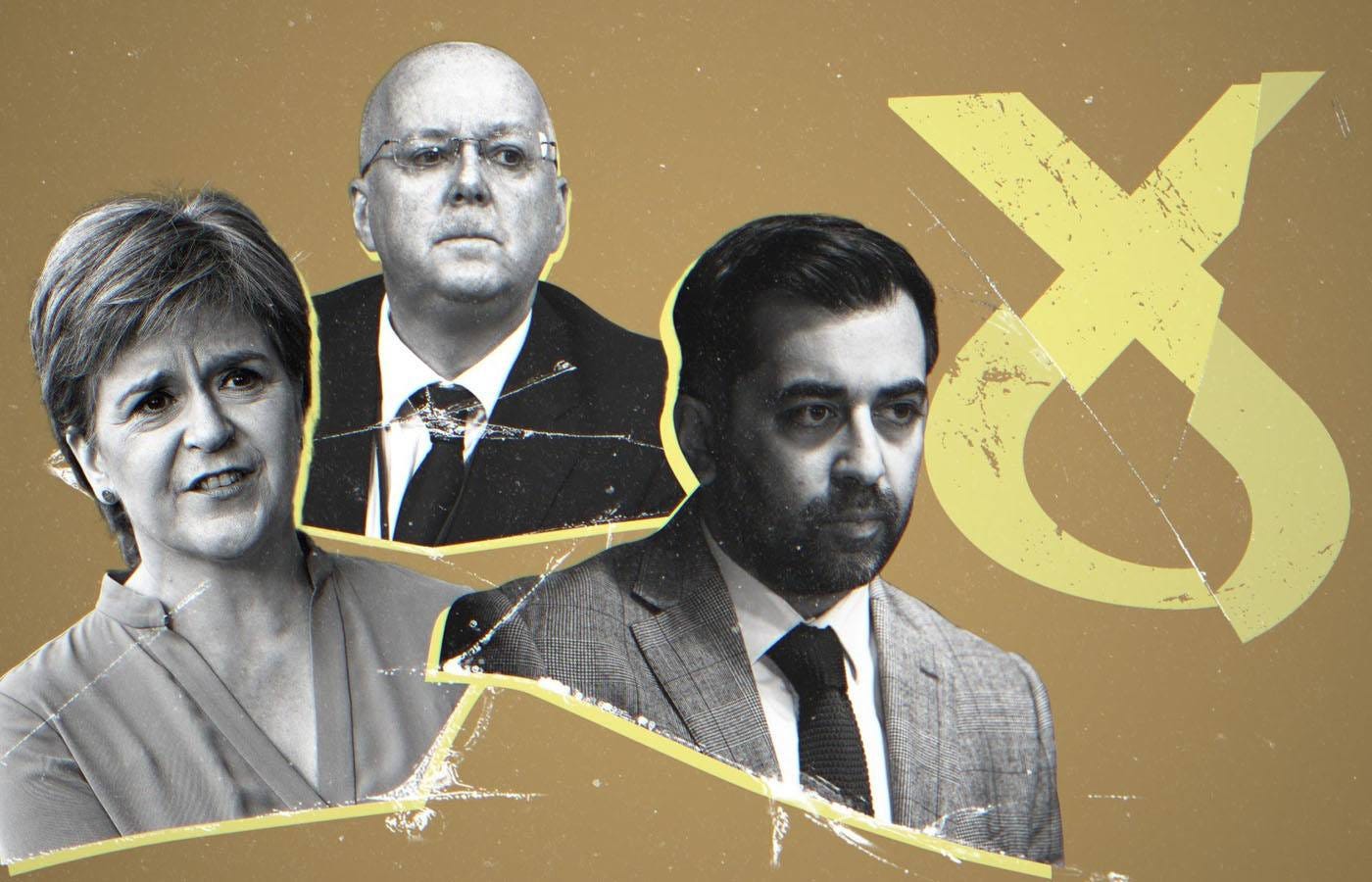Fractured And Adrift, The SNP Grapples Through An Identity Crisis
Corruption scandals, independence's waning influence, and a general feeling of apathy threatens to upend the SNP's nearly two decade grip on Scottish politics.
Last year, Nicola Sturgeon, then-Leader of the SNP and First Minister of Scotland, announced plans to hold a second referendum on Scotland’s independence on the 19th of October 2023, less than 10 years after the first vote had been held. To party insiders, it was the next struggle in the fight for Scottish self-determination, an opportunity to rally the party faithful and inject a new sense of purpose in a party that had begun to stagnate during the Covid pandemic.
Since then, however, the nationalist party has undergone a paradigm shift, both in public perception and in its political trajectory. It all began in November 2022 when the UK Supreme Court unanimously ruled against the Scottish Parliament having the unilateral ability to call a second referendum, citing that the prerogative was at Westminster’s discretion. The announcement, while not unsurprising, overturned the SNP’s future plans and plunged the movement into uncertainty. Without its raison d’etre, the party became adrift and ideologically vacuous.
If this wasn’t bad enough, disaster struck again in March 2023, when Sturgeon dramatically announced her intention to resign from frontline Scottish politics, ending 10 years of her leadership over the party and the independence movement. A power vacuum was immediately created, as the party fought amongst itself, each vying to succeed her. Sturgeon’s failure to groom a natural successor, just as Salmond had done with her, exacerbated an already tenuous crisis. Eventually, after weeks of agonising public quarrels that exposed the party’s myriad of internal divisions, Humza Yousaf won the leadership election, though by a much smaller margin than predicted, sparking concerns that the party was about to tear itself apart.
Shortly thereafter, Sturgeon’s motivations for resigning became clear as she and her husband were soon arrested over concerns that the party’s finances had been tampered with. While they were both eventually released from police custody, the altercation left another stain.
All of these worsening conditions manifested in electoral catastrophe on October 5th, when the party lost a by-election in Rutherglen and Hamilton West to Labour, in a historic swing. Days later, an SNP MP defected to the Conservatives.
This has all provided the backdrop for this week’s SNP conference in Aberdeen. Far from looking to the sunlit uplands of secession, members now seem to be gathered under lowering clouds. Party conferences, usually a time for unity, offered a reminder of divisions that still simmer beneath the surface. Several prominent nationalists skipped the gathering altogether, including Kate Forbes, Mr Yousaf’s main rival in that contest, and Fergus Ewing, a long-serving MSP who was briefly suspended in September after various rebellions.
The daunting task of reclaiming a narrative that the party was ready for the challenges ahead fell to Humza Yousaf. In his first conference speech as leader, Mr Yousaf said that rather than “feeling sorry for ourselves,” the SNP would “roll up our sleeves and work harder than ever before for the people of Scotland”.
Yousaf and other prominent SNP leaders have tried desperately to inject a new sense of momentum into the movement by arguing that by winning a majority of Scotland’s 57 Westminster seats, the party will have a new mandate to push for a second referendum. Aside from the simple fact that’s not how the embryonic relationship between Westminster and Holyrood works, recent polling figures threaten to put these lofty ambitions into jeopardy. At the current time of writing, polls suggest the party is heading for heavy losses. The SNP currently has 43 seats at Westminster, out of Scotland’s 59, but if the swing against them in Rutherglen is factored into the equation, it is expected to lose between 20 and 40 seats, which would relegate them behind Labour, just as they were before 2015.
Even if by some miracle Yousaf is able to reverse the party’s declining fortunes and bring the SNP back to where it was polling before the scandals, it looks very unlikely that he will get his way. Keir Starmer, Labour’s leader and Britain’s probable next prime minister, has said he won’t back another referendum. Although support for independence among Scottish voters remains steady, at a bit below 50%, it has never enjoyed the clear majority that might persuade Westminster to give Scotland another shot at sovereignty. Starmer may hope that with a Labour administration in Westminster - it’s worth bearing in mind that, compared to English voters, Scots are broadly more left-leaning - support for independence may plummet further, depriving the SNP of their popular mandate.
Yousaf’s problems aren’t just limited to an uncommunicative Westminster but also growing dissent at home. While the SNP have long felt comfortable on home turf, recent polling suggests that they are on course to lose nearly half of their seats in the Scottish Parliament, and may even fall behind Labour for the first time since 2007. If these apocalyptic predictions come to fruition, the SNP may not be leading a future Scottish administration, instead Holyrood may come back under the control of a Unionist Labour, backed up by the Conservatives and Lib Dems. This is in part due to a sense of apathy within the party ranks, but also a failing record in Scotland. Despite higher funding per pupil than in England, Scottish school performance lags far behind, and its health services are inundated with long waiting lists too. This is made even worse by climbing drug overdoes, that last year became the highest in Europe.
For a party that has been in office continuously since 2007, the best outcome may be a hiatus from responsibility. Opposition could allow the SNP to lick its wounds, reorganize itself and return with a newfound purpose. Or it could exacerbate the many irreconcilable divisions and lead to it haemorrhaging even more voters. Only time will tell.


